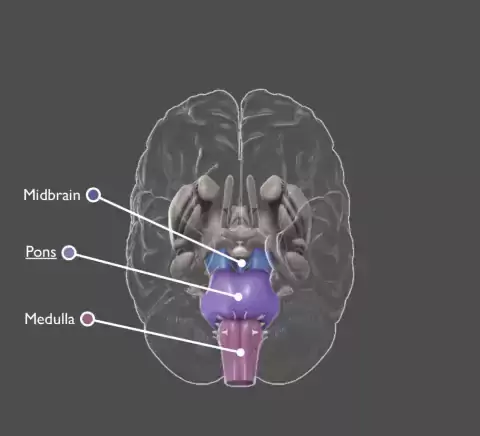Understanding and Coding MDS 3.0 Item N0450A: Resident Received Antipsychotic Medications
Understanding and Coding MDS 3.0 Item N0450A: Resident Received Antipsychotic Medications
Introduction
Purpose:
Antipsychotic medications are commonly prescribed in long-term care to manage a variety of behavioral and psychiatric conditions. MDS Item N0450A, Resident Received Antipsychotic Medications, is used to document whether a resident was administered antipsychotic medications during the assessment period. Accurate coding of this item is essential for regulatory compliance, ensuring appropriate use of these medications, and promoting the safety and well-being of residents. This article provides detailed guidance on how to correctly code this item according to the latest MDS 3.0 guidelines.
What is MDS Item N0450A?
Explanation:
MDS Item N0450A, Resident Received Antipsychotic Medications, captures whether a resident received any antipsychotic medication during the specified assessment period. Antipsychotic medications are used to treat conditions such as schizophrenia, bipolar disorder, and behavioral disturbances, but their use must be carefully monitored due to potential side effects, especially in older adults. Proper documentation of antipsychotic use is necessary to ensure the resident's treatment is clinically justified and in line with regulatory guidelines.
Guidelines for Coding N0450A
Coding Instructions:
To correctly code Item N0450A, follow these steps:
-
Review the Resident’s Medical Records:
- Examine the resident’s medication administration records to determine if any antipsychotic medications were administered during the assessment period.
-
Determine the Appropriate Response:
- Code “0” if the resident did not receive antipsychotic medications during the assessment period.
- Code “1” if the resident received any antipsychotic medications during the assessment period.
-
Enter the Response in Item N0450A:
- Record the appropriate code (0 or 1) based on whether the resident was administered antipsychotic medications during the assessment period.
Example Scenario:
A resident with a history of dementia and behavioral disturbances was prescribed an antipsychotic medication to manage symptoms of aggression. The medication was administered throughout the assessment period as part of the care plan. In this case, 1 would be entered in Item N0450A to indicate that the resident received antipsychotic medications.
Best Practices for Accurate Coding
Documentation:
- Maintain accurate and up-to-date medication administration records, ensuring that all instances of antipsychotic medication use are documented.
- Include detailed documentation about the reason for prescribing the antipsychotic medication, including any behavioral or psychiatric symptoms that justify its use.
Communication:
- Foster communication among healthcare providers, ensuring that the interdisciplinary team is aware of the resident’s antipsychotic medication use.
- Regularly review the resident’s care plan and discuss the appropriateness of ongoing antipsychotic medication use during care planning meetings.
Regular Audits:
- Conduct regular audits of medication records to ensure that the use of antipsychotic medications is clinically justified and that proper documentation is maintained for coding Item N0450A.
- Ensure that Gradual Dose Reductions (GDR) are attempted when clinically appropriate, as part of medication management for residents receiving antipsychotics.
Conclusion
Summary:
MDS Item N0450A is essential for documenting whether a resident received antipsychotic medications during the assessment period. Accurate coding of this item ensures that facilities comply with regulatory guidelines for psychotropic medication use, and it promotes safe and appropriate care for residents. By adhering to the guidelines and best practices outlined in this article, healthcare professionals can ensure that antipsychotic medication use is properly managed and documented.
Click here to see a detailed step-by-step on how to complete this item set
Reference
CMS's Long-Term Care Facility Resident Assessment Instrument 3.0 User’s Manual, Version 1.19.1, October 2024. Refer to [Chapter 3, Page 3-150] for detailed guidelines on documenting the use of antipsychotic medications and related psychotropic medication management practices.
Disclaimer
Please note that the information provided in this guide for MDS 3.0 Item N0450A: Resident Received Antipsychotic Medications was originally based on the CMS's Long-Term Care Facility Resident Assessment Instrument 3.0 User’s Manual, Version 1.19.1, October 2024. Every effort will be made to update it to the most current version. The MDS 3.0 Manual is typically updated every October. If there are no changes to the Item Set, there will be no changes to this guide. This guidance is intended to assist healthcare professionals, particularly new nurses or MDS coordinators, in understanding and applying the correct coding procedures for this specific item within MDS 3.0. The guide is not a substitute for professional judgment or the facility’s policies. It is crucial to stay updated with any changes or updates in the MDS 3.0 manual or relevant CMS regulations. The guide does not cover all potential scenarios and should not be used as a sole resource for MDS 3.0 coding. Additionally, this guide refrains from handling personal patient data and does not provide medical or legal advice. Users are responsible for ensuring compliance with all applicable laws and regulations in their respective practices.










